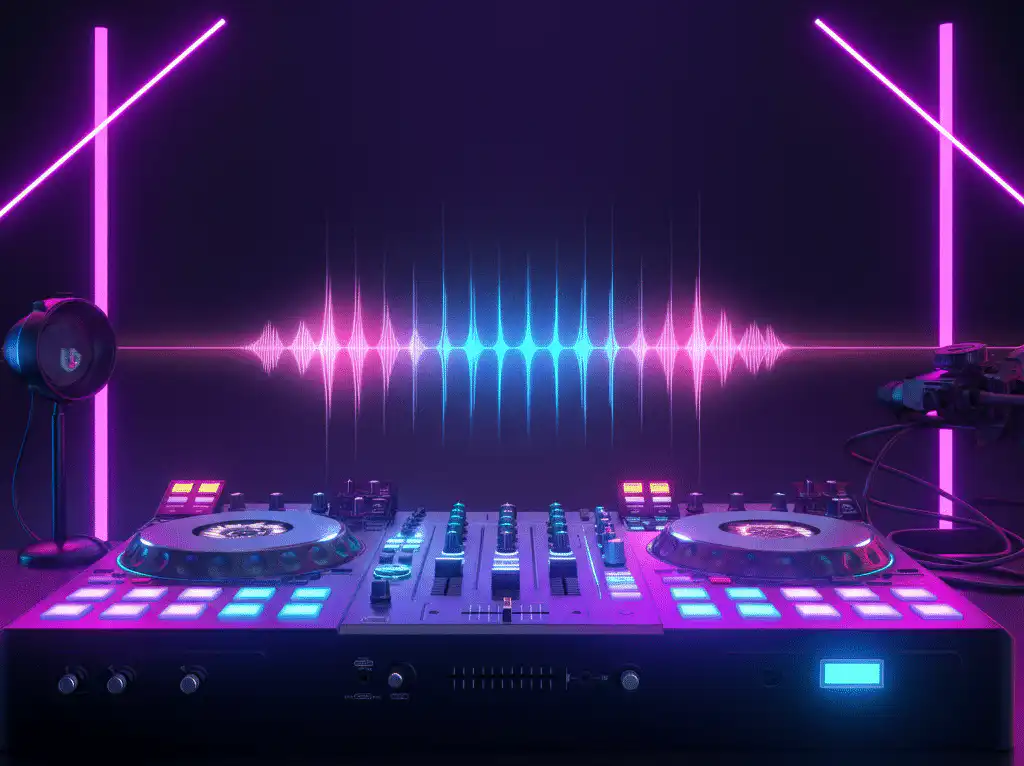10 Essential Skills You’ll Learn in an EDM Music Course

If you want to create EDM tracks but don’t know where to start, an EDM course could be your launchpad. These courses teach both the technical skills and creative strategies to make beats that move people. Make your corporate event unforgettable with DJ Will Gill. Check his Instagram to relive thrilling experiences with AT&T Business, CDW, Team USA, Virgin Galactic, and plenty of others!
Watch the video below to see Will Gill’s live stage performance.
Here are 10 essential skills you’ll master along the way.
1. Music Production Basics
The first step to making incredible EDM tracks is learning the fundamentals of music production. You’ll discover how Digital Audio Workstations (DAWs) work, which is the software used to create, edit, and arrange music. Think of this as building the foundation of your artistry—without it, it’s hard to go further.
For example, you’ll learn to use DAWs like Ableton Live or FL Studio to sequence drum beats or create simple melodies. Even if you’ve never touched music software before, you’ll begin to feel confident navigating these tools.
2. Sound Design
Sound design is where your creativity truly shines. This skill focuses on crafting unique sounds using synthesizers, effects, and samples. Have you ever wondered how those laser-like drops or pulsating basslines are made? It’s all about sound design.
You’ll learn to tweak synthesizers to create everything from ambient pads to cutting-edge lead sounds. For instance, layering multiple sounds can produce a richer, more dynamic audio experience for your audience.
3. Beat Creation
Creating beats that hit hard and fit perfectly into your track is a vital skill. You’ll explore rhythms, drum programming, and techniques for creating tight percussion patterns.
Imagine designing a house beat that immediately gets people tapping their feet. Whether it’s arranging kick drums, hi-hats, or snare hits, you’ll learn to program beats that resonate with listeners.
4. Melody and Chord Progressions
Catching the listener’s attention often starts with a memorable melody or chords. Beyond creating beats, you’ll learn to compose melodies and layer chord progressions that enhance your tracks. Creating a strong EDM drop means mixing a catchy melody with driving basslines—something you’ll practice in a course.
5. Mixing and Mastering
Mixing and mastering turn raw tracks into polished, professional-sounding music. Balances mix and tracks sounds, while mastering enhances their loudness and quality.
You’ll work on balancing high and low frequencies, making sure your bass doesn’t overpower vocals or melodies. Imagine finishing each track with a clean, high-quality mix that’s ready to be played in clubs or on a streaming platform.
6. Using Effects
Effects like reverb, delay, and distortion can add life and character to your music. You’ll study how to apply these elements strategically to create depth and texture in your tracks.
Adding reverb creates a spacious feel, while distortion adds grit and energy to leads.
7. Arrangement and Song Structure
A great EDM track isn’t just loops stitched together—it needs proper flow and structure. You’ll learn how to arrange intro, build-up, drop, and breakdown sections to keep your audience engaged from start to finish. Think of this as learning how to tell a musical story that makes sense and feels exciting.
8. Sampling Techniques
Sampling involves taking snippets of existing recordings and modifying them to fit your music. Many iconic EDM tracks use creative sampling to stand out. You’ll learn how to chop, pitch, and layer samples to create something truly unique.
For example, you might sample an old vocal line and tweak it to fit perfectly into your build-up or drop.
9. DJing Techniques
Because EDM is often created for live performances, you’ll also develop DJing skills. Courses usually cover the basics of beatmatching, syncing tracks, and creating seamless transitions. These skills are vital if you want to share your music at events or clubs.
Imagine mixing your music onstage, keeping the crowd dancing all night—this is what you’ll learn.
10. Creative Thinking
Beyond the technical skills, you’ll cultivate your creativity. EDM production is all about thinking outside the box—combining sounds or adding twists that surprise and delight listeners. An EDM course will challenge you to experiment and push your boundaries, leading to originality in your work.
Why Consider an EDM Course?
An EDM music course gives you the tools to turn your ideas into a polished reality. It bridges the gap between simply loving EDM and actually creating it. With the skills listed above, you’ll not only learn to express yourself but also prepare to share your tracks with the world.
If you love creating bass drops or house melodies, an EDM music course could unlock your potential. Get ready to make music that moves people—literally.